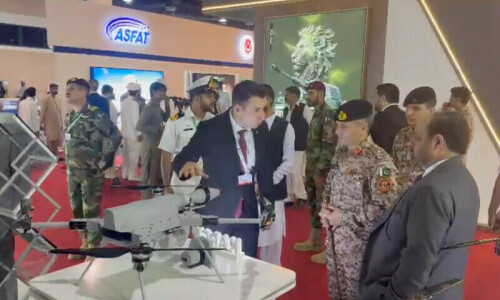
A WEEK or so before I boarded the PIA flight to Jeddah on my way to Makkah for performing Umrah, I was told that the second language in the holy city is Urdu. That was music to my ears.
As my family members and I checked in at the hotel whose door opens right in front of the King Abdul Aziz Gate of Haram Shareef, the Bangladeshi porter who took our bags to our rooms spoke Urdu fluently. I tried some basic sentences in Bengali; he replied in his mother tongue, only to add in English that he was more at home in mine.
The following morning, at the restaurant on the first floor, I found the spread quite generous but more exciting was the presence of a waiter whose waistcoat sported a small nameplate bearing the word ‘Jinnah’.
“Are you from Pakistan?”
“No sir, I am from Sri Lanka. My father was a great admirer of the founder of your country so he named me after him,” he said.
A couple of hours later, I decided to take a tawaaf (a round of the Ka’aba). The round on the first floor was longer but safer. At some places where the roof was being repaired, there was a sign in Arabic and English (Keep away, work in progress), and Urdu (Faasla rakhain kaam jari hai). The security staff, comprising entirely of Saudis, was guiding the pilgrims saying ‘udhar’ (away), which was part of their limited Urdu vocabulary. By the way, the cleaning operations in Haram Shareef were executed almost entirely by Pakistanis.
Later in the day, I went to a locality called Misfalah, where I was told there were Pakistani shops and restaurants. The first outlet, selling prayer rugs (ja namaz), bed sheets and prayer beads (tazbeeh) was nothing much to write home about. The person manning the shop was terribly homesick “I get two months’ leave with pay but for that I have to labour for two years,” he said, with a sour expression. He belonged to Multan, a city he felt was one of the best in the world.
The shop next door was a part of a chain of pharmacies. The man sitting at the cash counter was a local Arab, who had a smattering of Urdu. His two colleagues who dealt with customers were Mohammed Akram from Sialkot and Ghulam Kibria from the Feni district in Bangladesh. They were answering the queries of two customers, both from India, in Urdu. However, they communicated with their boss in Arabic.
I learnt from Akram that the Pakistanis were mostly in the restaurant business. I had seen a thriving food stall selling chicken tikkas and biryani, to name a couple of delicacies, in a food court. They were listed in Urdu and English.
As I walked through the Misfalah bazaar, I eyed the Abu Hirb Restaurant. Sub-titled ‘Pakistani Hotel’, it offered hot naans, with different curries and a choice of rice-based dishes. Urdu shared space with Arabic and English on the board. As someone who has tried nihari from Chicago to Chennai, I was a bit disappointed to learn that the dish was available only on Fridays. We were leaving for Madinah on Thursday.
That was the day I ran into a person in his early ’30s, who referred to himself as Burmese. He could speak Urdu and Bangla with ease. “I am Rohingya,” he said. “My parents migrated to Bangladesh years ago. I was born there.” He was serving the holy zam zam water in Misfalah.
Urdu is also the second language at Masjid-e-Nabvi. At places where there were facilities for performing wuzoo (ablution), there are signs of either Mardana wuzoo ghar or Zanana wuzoo ghar for people belonging to the male or female genders.
The large billboard on Gate No. 15, one of the main entrances to the grand mosque, welcomed the faithful in six languages. The message in Urdu read ‘Aapki aamad hamari saadat/Aapki raahat hamari chaahat’.
In Madinah there is a profusion of Pakistani taxi drivers. A professor from Lahore who had left behind a handbag carrying his and his family members’ passports in a cab was at his wits’ end for he had to travel back home the next morning. A couple of hours of sheer suspense and futile efforts to trace the cabbie ended when he found his saviour, tracing him in the hotel from where he had picked up his passenger.
“Where have you come from?” asked a Bengali waiter I met in the foyer of the hotel in Madinah, where we were staying.
‘Whereabouts in Karachi?” was his second question.
“Seaview Township,” was my brief answer.
“Oh, I was working in a bungalow right behind Seaview,” he said. “I hold a Pakistani passport too,” he said in chaste Urdu. “Can I offer you a meal?”
“On my next trip or more likely when you are visiting Karachi,” I said as I tried to match his smile, which reminded me that Saudis, unlike other Arabs, are stingy about their smiles and they include those manning the reception counters in hotels.
Published in Dawn, January 30th, 2018











































